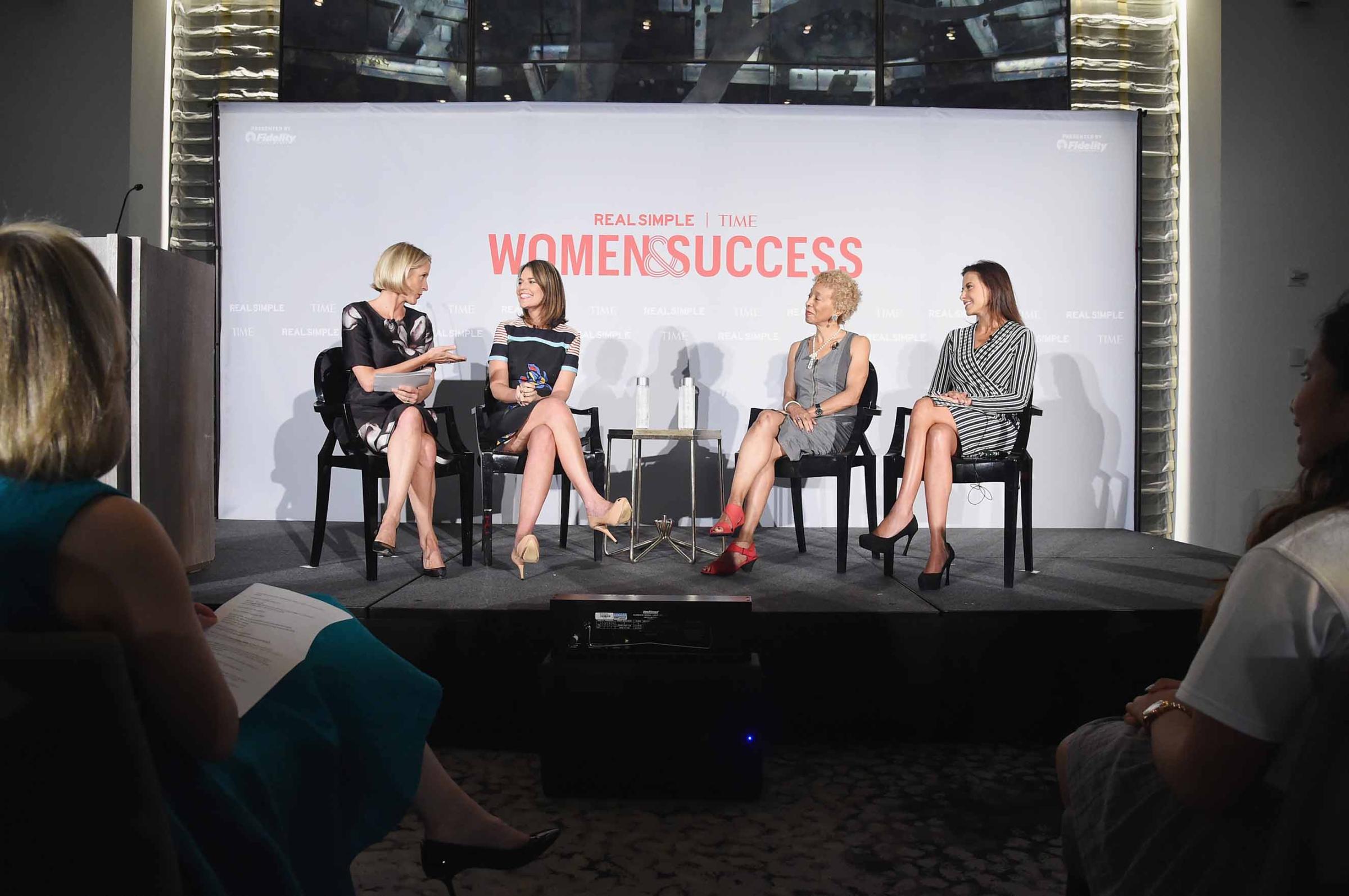Even women who believe that women should be successful don’t always agree on the nuances of the word “ambition.” That word was at the heart of a lively panel discussion at the Real Simple/TIME Women & Success event Thursday night.

The Today Show host Savannah Guthrie, author and critic Margo Jefferson and Goldman Sachs partner Dina Powell joined Real Simple editor Kristin van Ogtrop to unpack the complicated meaning of ambition, and how it might manifest itself differently in women and men.
Van Ogtrop, who wrote “Why Ambition Isn’t Working for Women” in this week’s issue of TIME, asked each panelist whether she considered herself to be ambitious.
“I would say no,” said Guthrie. “I hate the word. I think it’s impolite.”
“The one thing I’m ambitions about is not failing,” she continued. “That fear of failure has driven me. It has kept me on my toes.”
A tension between ambition and fear of failure seems to resonate with young women: In a new survey on ambition and success conducted by TIME and Real Simple, 44% of women in their 20s cited “fear of failing” or “lack of confidence” as the major things preventing them from being more ambitious, compared to only 22% of women in their late 40s and 50s. Yet many women do consider themselves to be quite ambitious: 51% of men and 38% of women said they were “very” or “extremely” ambitious.
Jefferson, whose memoir Negroland came out last week, said, “I have to admit, I am ambitious. But the aura, the connotation — greed, ruthlessness… That’s the masculine mythology that surrounds it.” Jefferson, a professor of writing at Columbia University, said that her female students often try to disqualify themselves. “It’s always a very smart girl who says, ‘I know this may sound stupid but…'”
Powell said that being prepared is one of the best ways she knows to compete with men who might be more confident. But sometimes, she says, that preparedness can backfire. As president of the Goldman Sachs Foundation, Powell is in charge of the 10,000 Women initiative, which aims to empower women entrepreneurs. Once, after she presented some of the initiative’s results at a panel, “My seven-year-old daughter said to me ‘Blah blah blah, fact, fact, fact.’ ‘Mom, why cant you tell a story about the women?'”
“I worry that sometimes women think we sound like ‘Blah blah blah’ when we talk about numbers and results and data,” she said. “But at the end of the day I think that is one of the best ways to compete.”
Guthrie described how the desire to be liked can affect how ambition is expressed. “How I would do a political interview on The Today Show is different than how I would do it on Meet the Press,” she said. “I don’t want to come off as shrill and horrible and wretched. I want to come off as tough and fair and prepared. I try to be that, so that it looks like I am.”
“Shrill” made Guthrie think about how criticism about the very sound of a woman’s voice makes her feel self-conscious. “I wish I had a different sounding voice,” she says. “I think it sounds too much like a girl, like it’s not strong enough. There’s something about women’s voices that I think they find themselves having to moderate,” she continued. “You will hear people say, ‘Oh, I just can’t listen to her, it’s so shrill.’ I know it seems like a shallow thing, but I know it’s an extra hurdle that women have to climb.”
How can women keep their goals in sight? Jefferson says the secret is in friendship. “You stay closely connected with other girls and women who share your values with you, and you help each other,” she said. “When you feel weak and frightened and depressed, you talk it through. You stay open-hearted with each other, and it helps give you fortitude.”
More Must-Reads from TIME
- Where Trump 2.0 Will Differ From 1.0
- How Elon Musk Became a Kingmaker
- The Power—And Limits—of Peer Support
- The 100 Must-Read Books of 2024
- Column: If Optimism Feels Ridiculous Now, Try Hope
- The Future of Climate Action Is Trade Policy
- FX’s Say Nothing Is the Must-Watch Political Thriller of 2024
- Merle Bombardieri Is Helping People Make the Baby Decision
Write to Charlotte Alter at charlotte.alter@time.com